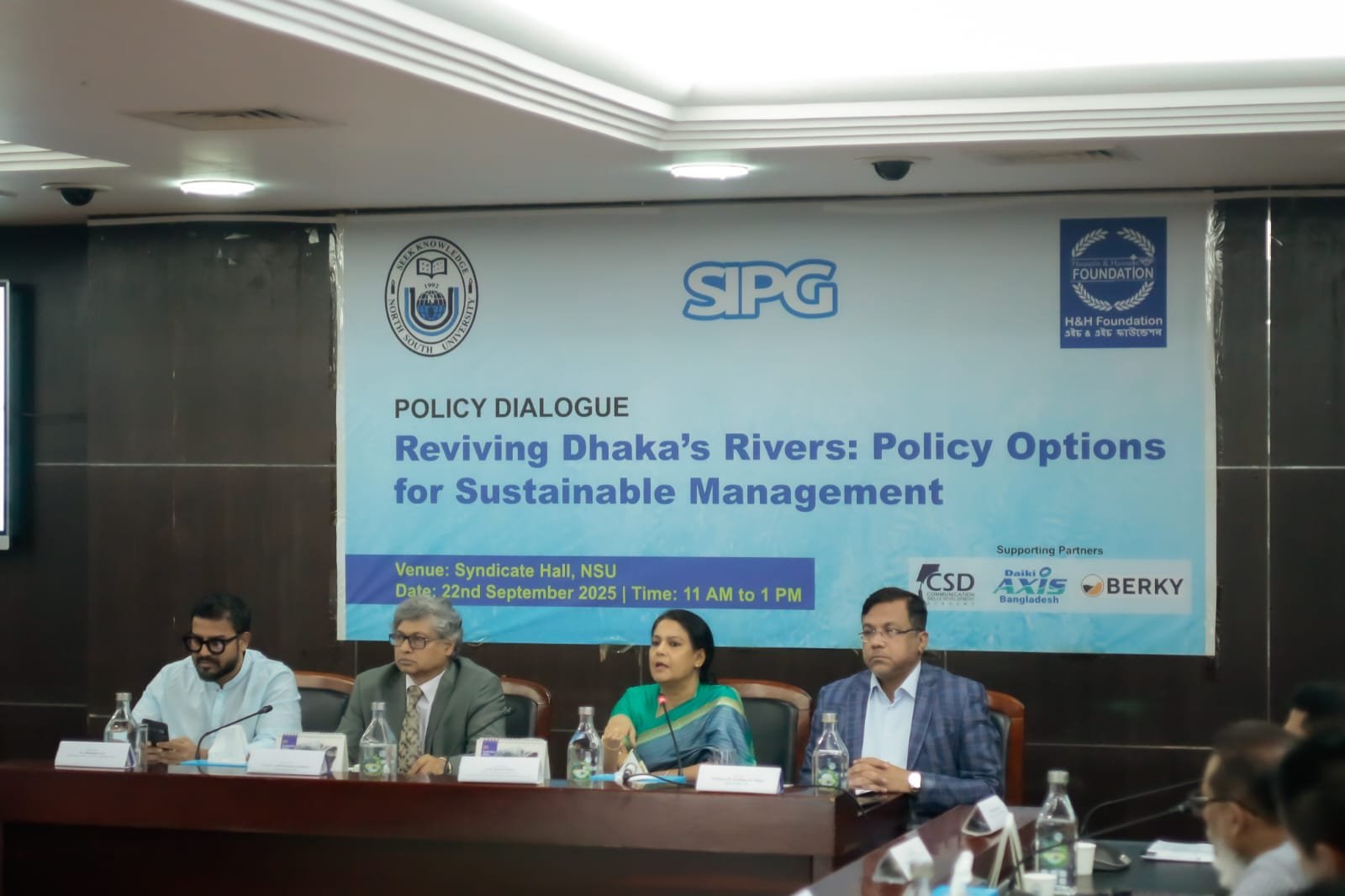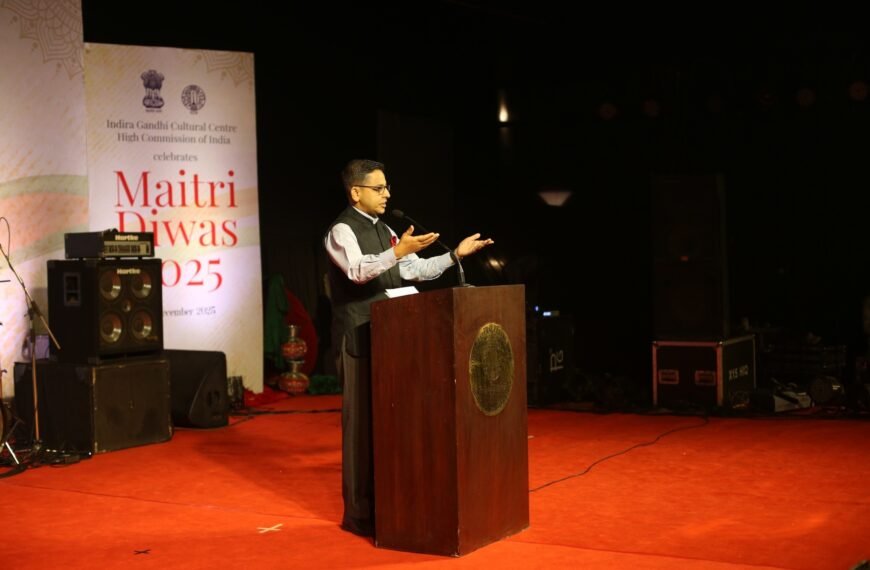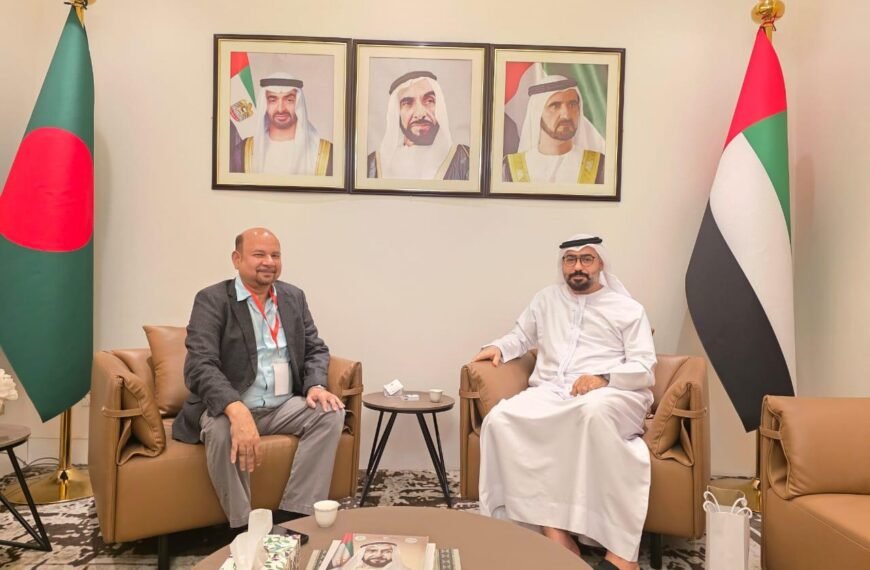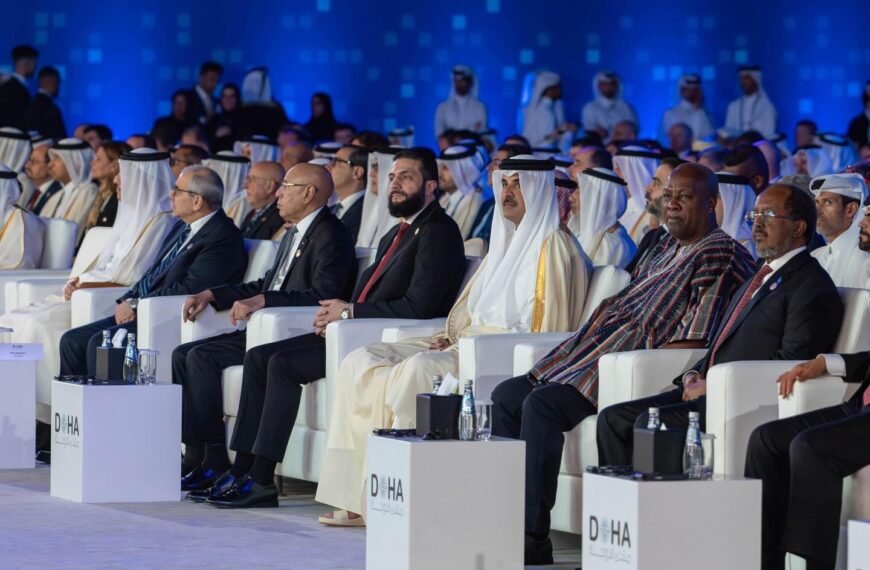North South University (NSU)’s South Asian Institute of Policy and Governance (SIPG), in collaboration with H&H (Hussain & Hussain) Foundation and with the support of BIWTA, Dhaka North City Corporation, BARKI, Dyke Axis and CSD Academy, organized a policy dialogue titled “Reviving Dhaka’s Rivers: Policy Options for Sustainable Management” at NSU’s Syndicate Hall.
Dhaka city, which is surrounded by the Buriganga, Turag, Shitalakshya, Dhaleshwari and Balu rivers, is facing severe pollution due to industrial effluents, municipal solid waste, urban waste, illegal encroachment and loss of wetlands. The dialogue brought together policymakers, academics, industry experts and civil society representatives to formulate effective strategies for river restoration.
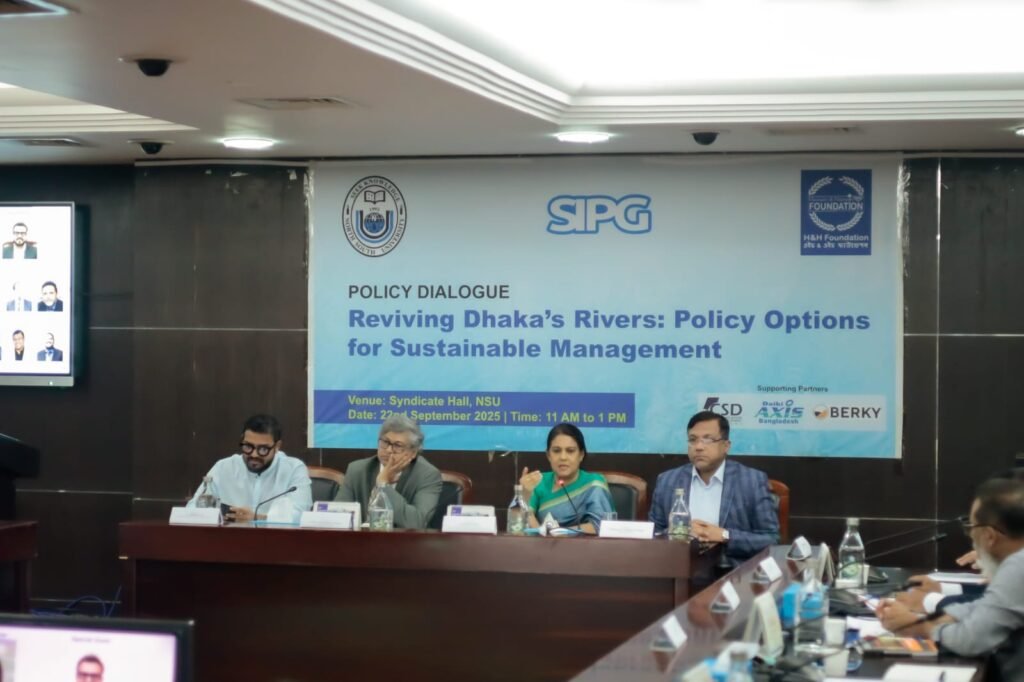
The guest of honor at the event, Syeda Rizwana Hassan, Advisor to the Ministry of Environment, Forest and Climate Change and the Ministry of Water Resources, emphasized the lack of nature-centric priorities in the city. She cited examples of environmental damage from projects like the Chittagong-Cox’s Bazar Railway and cited the Ganges River as an example of a successful holistic approach. “A holistic, nature-centric approach is needed to protect Dhaka’s rivers—quick fixes will not prevent irreversible environmental damage,” she said.
Special guest Mohammad Azaz, Administrator of Dhaka North City Corporation, highlighted the successful restoration of two dead rivers in Dhaka and emphasized the importance of water management at the source. He called for prioritizing biodiversity to build a smart and sustainable Dhaka.
Dr. Abdus Samad, Associate Professor, Jagannath University and Adjunct Faculty, NSU, presented the keynote address. He said that Dhaka’s rivers, especially Buriganga and Shitalakshya, are being severely polluted due to untreated industrial waste and weak laws. The solution includes the formation of a river protection authority and economic incentives for clean environment-friendly practices.
Professor Dr. Md. Zakaria, Director of the Climate Change and Disaster Resilience Center at NSU, emphasized in his speech that river pollution has long-term impacts and requires integrated policies, behavioral changes and social engagement to prevent irreversible damage. Professor Dr. Anupam Hossain, a public health and communication expert, highlighted the dangers of river pollution and the need for interdisciplinary collaboration. He emphasized the need for practical and cost-effective solutions involving doctors, engineers, researchers and policymakers.
Professor Dr. Mohammad Zulfikar Ali, Consultant, H&H Foundation, noted that despite knowing the source of pollution, effective action is not being taken due to weaknesses in law enforcement and policy formulation. Commodore Arif Ahmed Mostafa, Chairman, BIWTA, Ministry of Shipping, highlighted the bottlenecks in the river system and stressed the need for sustainable management including solid waste control.
Mr. Rui Ovas, Managing Director, Dyke Axis-Bangladesh Limited, said that most of the river pollution is due to untreated sewage. He stressed the need for smart, automated and sustainable solutions to address the problem at source. Mr. Martin Alkemeier, Managing Director, Berki Asia Private Limited, said that work should be started without waiting for a perfect solution. According to him, gradual improvements are more effective than procrastination.
Session Chair, NSU Vice Chancellor Professor Abdul Hannan Chowdhury said that although waste management is often discussed, efforts should be made to tackle pollution at its source. He referred to the SIPG policy brief as an effective strategy paper and expressed hope for a more sustainable and vibrant Dhaka. The event was graced by M. The dialogue began with a welcome address by Prof. Shafaq Hossain and was moderated by Prof. Dr. Sheikh Toufiq M. Haque, Director, SIPG, NSU.
The dialogue concluded with a call for concerted action among policymakers, industry leaders, researchers, and the general public. With the combined efforts of all, it is possible to protect Dhaka’s rivers, improve public health, protect livelihoods, and ensure a resilient urban environment.

